#21 The turning point that redefined everything I once thought about 'signs'
Allowing space for life's unexplainable moments

In today’s newsletter, I reflect on something that can be controversial and stir up some debate; something that many people believe in wholeheartedly, while others remain deeply skeptical — the significance of signs. It’s a topic that bridges the logical and the unexplainable, the rational and the mysterious. Some might dismiss them as mere coincidence, while others feel strongly connected to their presence.
I didn’t always believe in signs, but that all changed the night my dad died.
I’d love to hear from you! When you’re done reading, click the COMMENT button below and share with us:
Do you believe in signs?
Have you received signs from a loved one who’s passed or experienced unexplainable moments that you believe have a deeper significance?
Hi, I’m Ruhie! A writer, doctor, mum, and a daughter who lost her dad to a terminal illness.
Welcome to “From the Heart to Beyond” — a space where I share practical wisdom and emotional insights from my grief journey and family life, to help you navigate loss, live with intention and find strength through life's challenges.
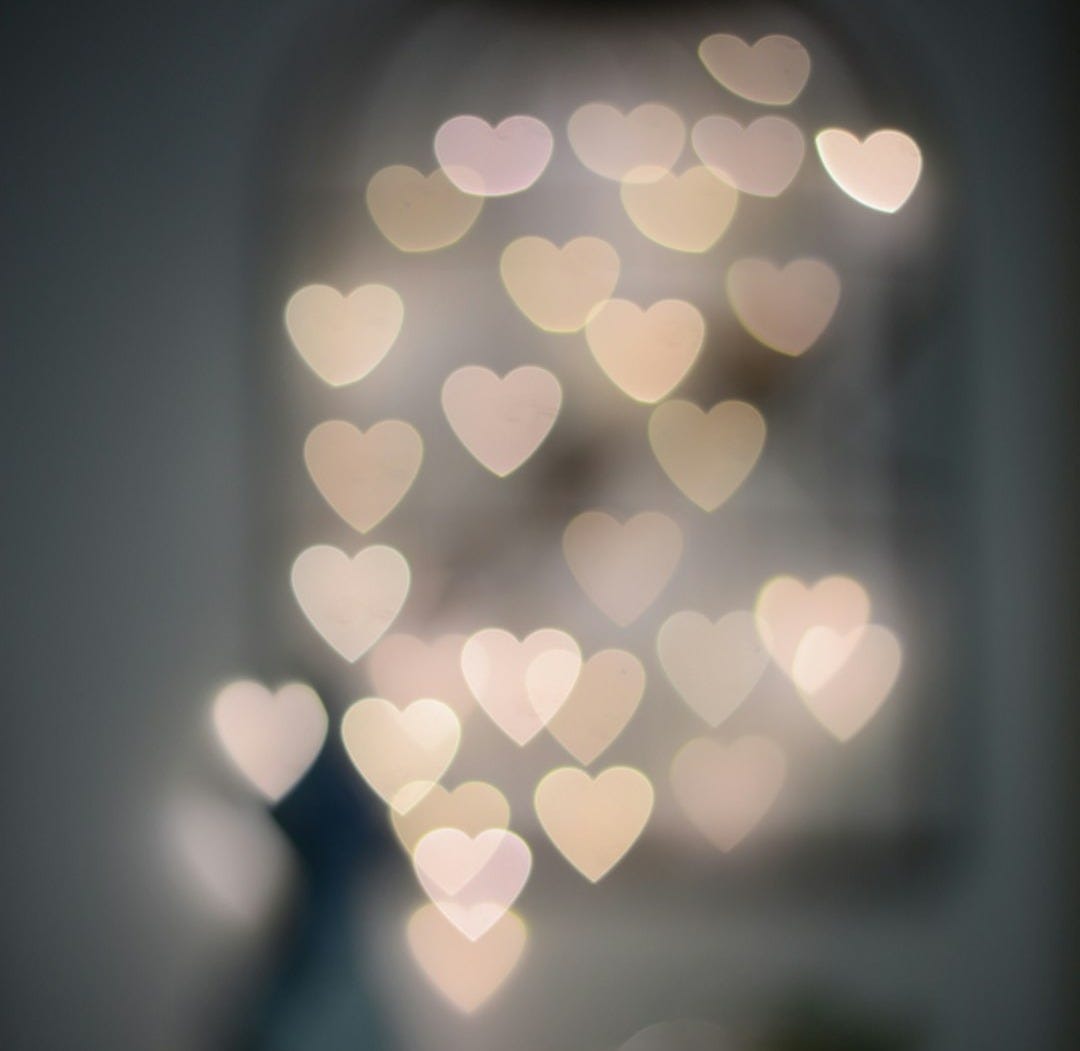
Dear Dad,
I don’t consider myself a “woo-woo” person — someone who leans into all things mystical and supernatural. Not that there’s anything wrong with that at all! It’s just that, maybe because I’m a bit of a control freak, I’ve always been more of a facts-and-logic kind of person. My years working in medicine has only honed this mindset further. As a doctor, you’re trained to think critically and make decisions based on evidence and deductive reasoning. My instincts, at work and in life in general, tend towards remaining more grounded in the scientific world where things can be analysed, measured and proven.
Yet, there’s always been a part of me that believes in something bigger than us — even if it cannot be seen or proven. Some call it God or faith. For others, it’s the universe or simply a higher power. Regardless of the name we give it, I’ve always felt that surely there’s more to life than what we can explain.
I like to think science and spirituality can coexist. Maybe that’s why I’m so fascinated by astrology? I don’t rely on it to guide my daily life or decision-making, but I do get a thrill out of noticing those little moments when it aligns with reality, and somehow the unexplainable seems to make sense. Even in my line of work, we sometimes have to accept a level of uncertainty; there are situations where we can’t objectively measure things like pain or pinpoint an exact cause, but that doesn’t make them any less real for the person experiencing them. I think there is something powerful in letting go of disbelief and embracing the idea that not everything needs to be explained.
I didn’t always used to feel this way, but I can pinpoint the exact moment I became open to the power of signs — it was the night you died.
I got the call from mum when we were out to dinner at my in-laws’ place. The instant I saw her name on the screen, a cold knot formed in my stomach. Mum wouldn’t disturb me there unless it was serious. I knew then — it had to be about you.
She told me you’d felt dizzy all of a sudden while watching TV. It was completely out of the ordinary, and since I’m a doctor, you’d asked her to call me right away.
“Check his vitals and blood pressure,” I instructed, trying to keep my voice steady, but inside, my heart was pounding. It felt like hours passed before she came back on the line, though it was probably only a couple of minutes.
When she finally spoke, the panic was unmistakable, her words rushing out in a frantic, broken stream. Your blood pressure was off-the-charts high — which was weird because you never had high blood pressure. I got her to recheck it, just to be sure. But the next reading was even higher.
“Call an ambulance. I’ll be there in 10 minutes.”
We bundled our things and rushed to the car. In that short time, Mum called back — you were now unconscious. The doctor in me already feared the worst. I had a terrible sinking feeling. This is bad.
The daughter in me clung onto hope. It was supposed to be like this. We had been preparing ourselves for your death for the last three years — ever since you were diagnosed with a terminal illness. By then, ALS/MND* had left you completely paralysed, wheelchair-bound, and unable to eat or drink. You were fed only through a tube that ran directly from your abdominal wall into your stomach, and needed a ventilator to breathe overnight. Yet, for the last few weeks, your condition had remained stable. Nothing had changed dramatically. There had been no sudden signs of deterioration. So what was happening now?
It was at this point that Az started crying hysterically, his wails echoing through the car as I struggled to strap him into his seat.
It was totally out of character. He was normally a very calm, contented baby. He’d napped well that day, eaten without a fuss, and had been playing happily all evening.
But the moment we got in the car, something snapped.
We tried everything we could to calm him down. As parents, it’s amazing how quickly you learn what does and doesn’t work to settle your kids. Even at six months old, we had a mental list of tips and tricks — a whole repertoire to draw from when we needed it. But that night, nothing worked.
Not my voice, which usually calmed him down instantly.
Not the familiar game of “peek-a-boo”, which never failed to make him giggle.
Not his favourite song “twinkle twinkle little star”, which always settled him in any situation.
But not that night. Nothing worked.
It was like he was possessed.
We arrived home ten minutes later to the flashing red and blue lights of an ambulance parked in the driveway, paramedics huddled around your wheelchair, mum distraught and clutching your cold lifeless hands. You were gone.
And despite the overwhelming grief that consumed my mind and body after we lost you, I couldn’t shake the feeling that Az knew. From the moment we got in the car, it was as if he was channeling the energy of something terrible happening. I know some people would disagree, and say he was simply picking up on our apprehension and fear. Children are remarkably perceptive like that. But I believe it was something more.
Because, do you want to know the crazy part?
I kid you not, he stopped crying at the exact moment you were pronounced dead.
Even now when I tell this story six years later, it gives me chills.
Again, this could be chalked up to sheer coincidence; but I feel something deeper was at play — that something in him must have sensed that someone who loved him dearly was leaving this earthly world forever.
It made me believe there are forces that connect us beyond our recognition.
But that wasn’t the only sign I received in the week you died.
One of the things I loved most about you was your great sense of humour. You loved a good practical joke. On the day of your funeral, something happened that felt like an eerily uncanny reflection of that — and quite frankly, it was impossible not to read into it.
That morning, three days after you passed, we were allowed to bring your body home just before the funeral to perform the last rites as per Hindu custom. Family and friends had all gathered to pay their respects. There might have been fifty or sixty people — I can’t quite recall.
At the end, when the funeral directors loaded your body back into the hearse to take to the cemetery/crematorium, we all followed outside to see you off. I’m hazy on the details, but what I remember clearly was feeling completely and utterly broken. Like a robot, performing actions and going through the motions on autopilot; allowing myself to be led, guided and handled by the people around me who knew better because I was a shell of a person.
As we were heading back in, it dawned on us — the front door had shut and no one had taken the house key. In the trauma and commotion of such a heavy, heartbreaking day, we had forgotten something so simple, so routine, so wholly inconsequential.
Except, that day, it mattered. All our belongings were inside — phones, car keys, handbags, everything we’d need to drive to the funeral, which was starting imminently; yet here we all were, the people closest to you, literally stranded outside the front door with no way in.
Despite feeling so shattered, I laughed. People stared at me like I’d lost my mind with grief. But I couldn’t help it. Because I knew in that moment, this was a sign from you. You would’ve found this so funny; it felt like you were pulling the strings from wherever you were, lightening the mood on such a difficult day. In life, you always knew how to bring humour and lightness to any situation, and it felt like there you were doing it in death too.
To me it was a reminder from you that everything was going to be okay — a message that, even in the darkest times, there is still light and joy and love and laughter in life. On a day that was otherwise so devastating, this small moment brought unexpected comfort and, surprisingly, even a smile as I thought of you.

I believe experiences like these are more than just random coincidences; they carry a deeper meaning. Though impossible to prove, it fills me with wonder and hope to think of them as signs — life-affirming reminders that we are never truly alone, and that the bond we share with those we’ve lost endures beyond death. There is power in letting go of the need to explain everything, and instead, allowing ourselves to see the magic in the everyday mysteries of life.
In a world full of chaos, these signs and unexplainable moments offer something logic alone cannot: hope, comfort, and a sense that there is something guiding us, even if it cannot be seen or proven. For those of us navigating grief or life’s uncertainties, signs can be a lifeline — offering a connection to those we have lost, and in doing so, perhaps a path to a deeper understanding of ourselves and our place in the world.
Miss you every day, Dad. Love you always. Until next time 💌
Ruhie
*ALS (amyotrophic lateral sclerosis), also known as MND (motor neurone disease) or Lou Gehrig’s disease. It is a terminal neurodegenerative disease that affects the motor neurones in the brain and spinal cord, causing sufferers to lose all voluntary movement over time. It is universally fatal, with an average life expectancy of just 2-3 years from diagnosis.
I’d love to hear from you! Click the COMMENT button below and share with us:
Do you believe in signs?
Have you received signs from a loved one who’s passed or experienced unexplainable moments that you believe have a deeper significance?
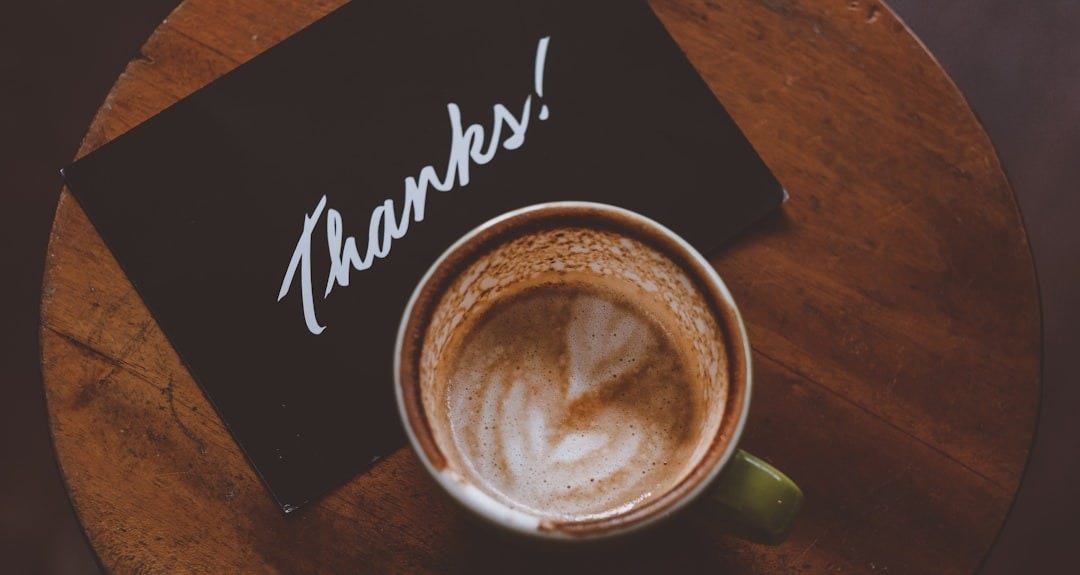
Thank you for being here and supporting my work. I am truly grateful!
If you got value from this and you think others might too, please:
Click the HEART button 💟 and leave me a COMMENT 💬
SUBSCRIBE for free to “From the Heart to Beyond”
SHARE my newsletter with someone you think would appreciate it
And don’t forget to
🌈 Live Fully
💛 Love Deeply
😁 Laugh Often
⏳ Make the most of the time we are given



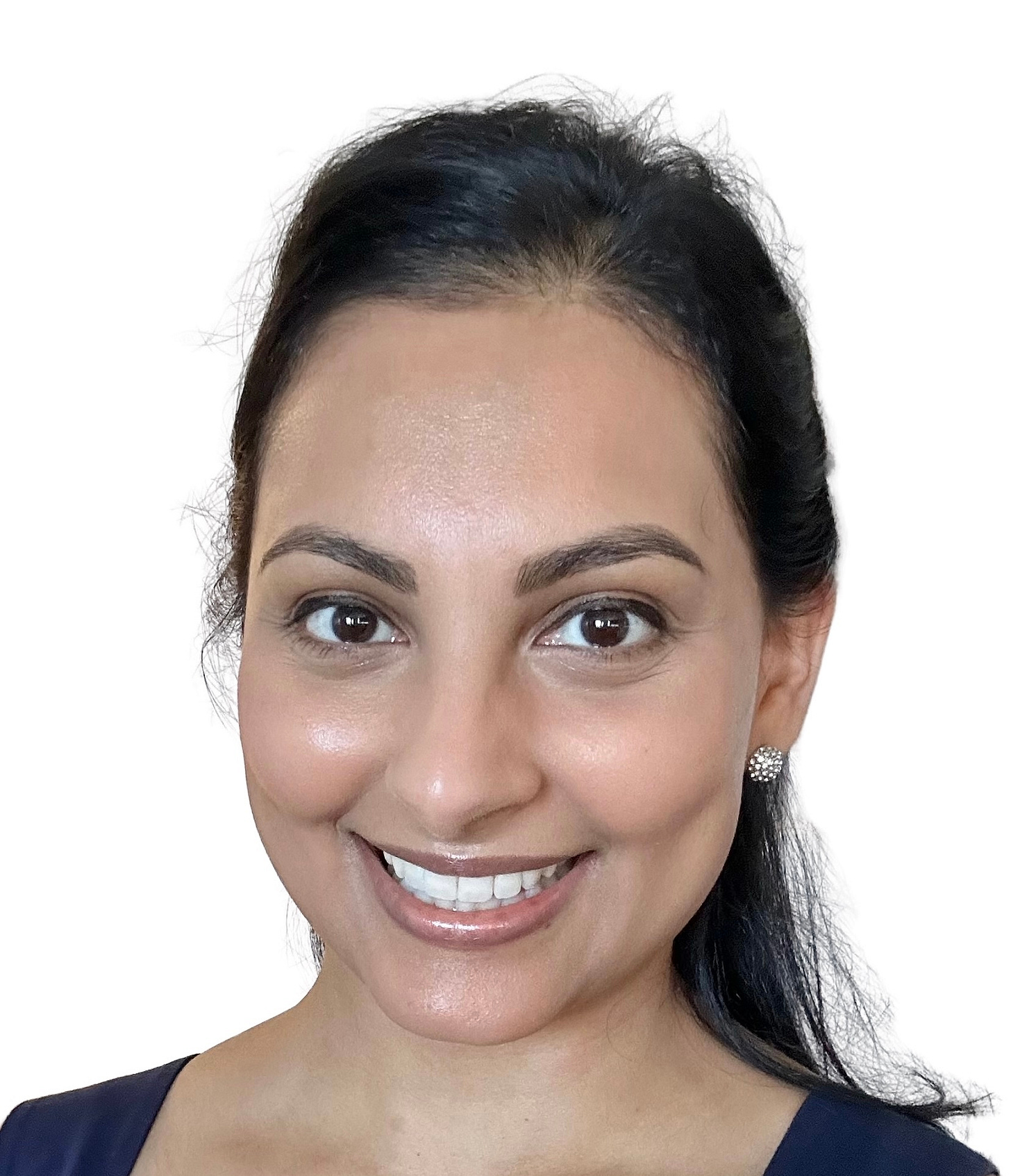
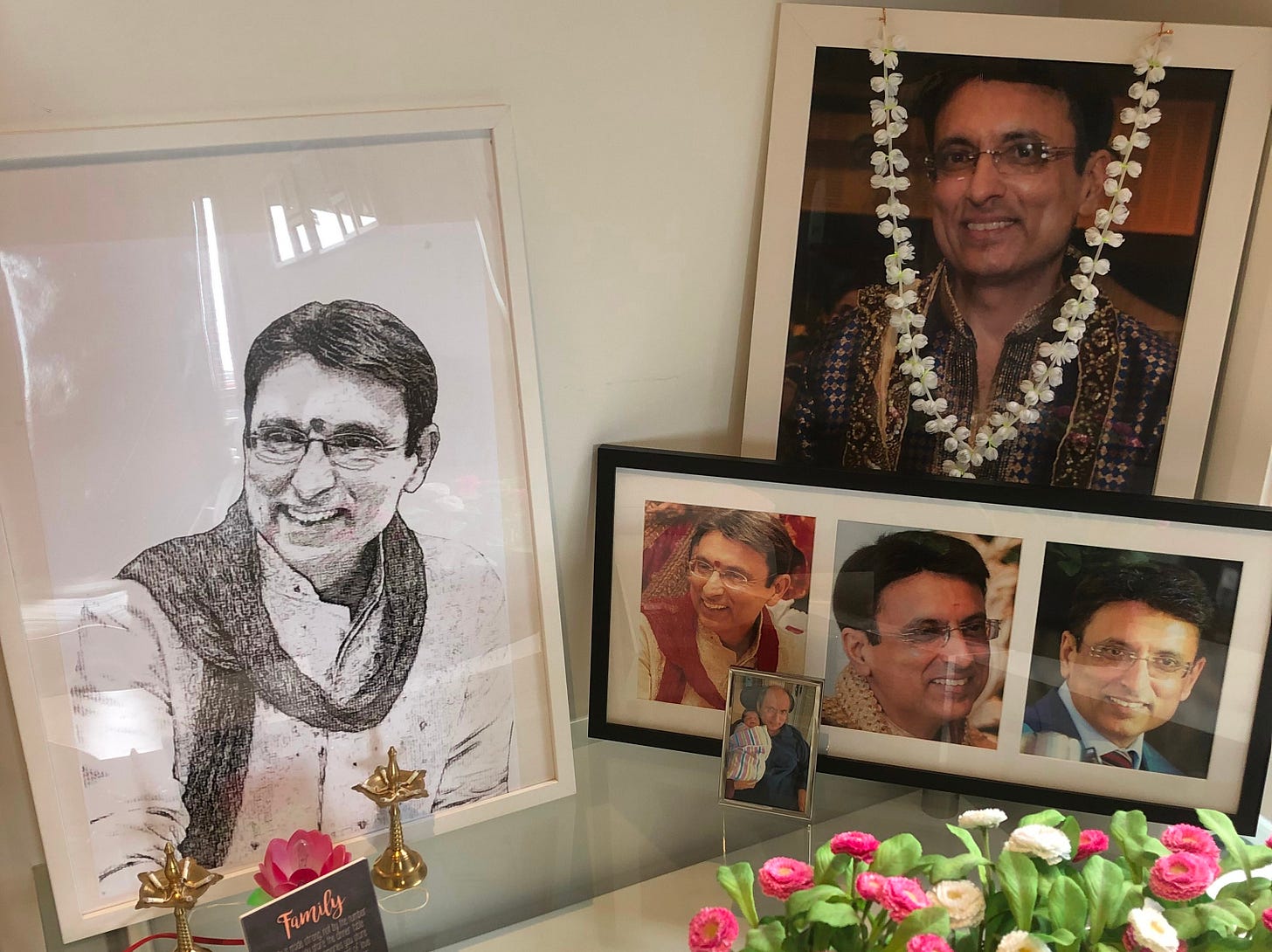
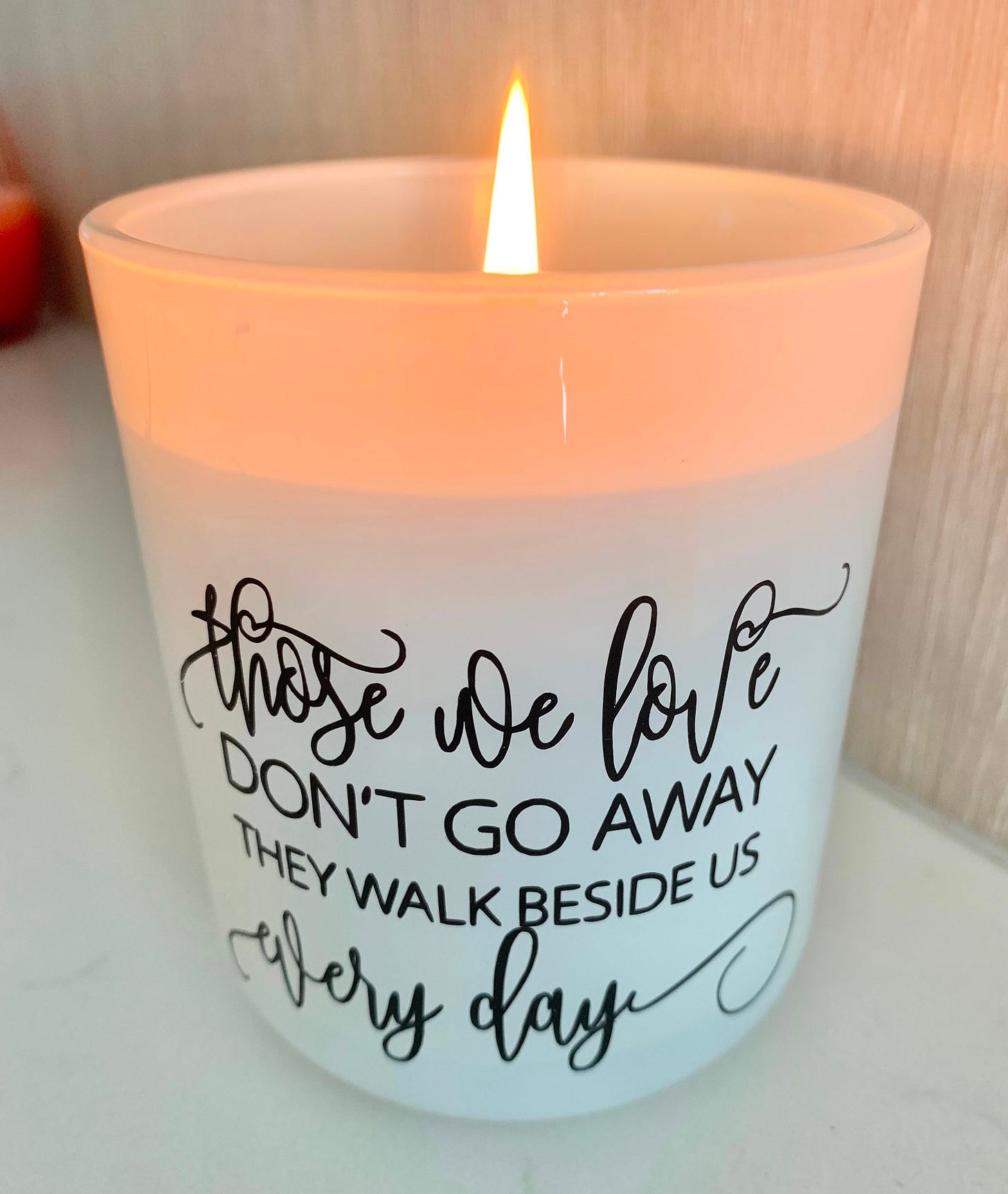
I really liked this, Ruhie. As you know, I'm a person of faith, but I'm also quite skeptical of things like signs. Still, I've experienced quite a few incidents like yours after Ren's death that I can only attribute to some supernatural sign he's sending me to let me know he's okay. So very strange, isn't it?
As usual your subtract are perfect. I love. Reading. Them with sadness. Yes, I agree children have the sixth sense to what is going to happen. May I also add, dogs are also gifted with this sense. Thank you beta. Looking forward to your next subtrack.